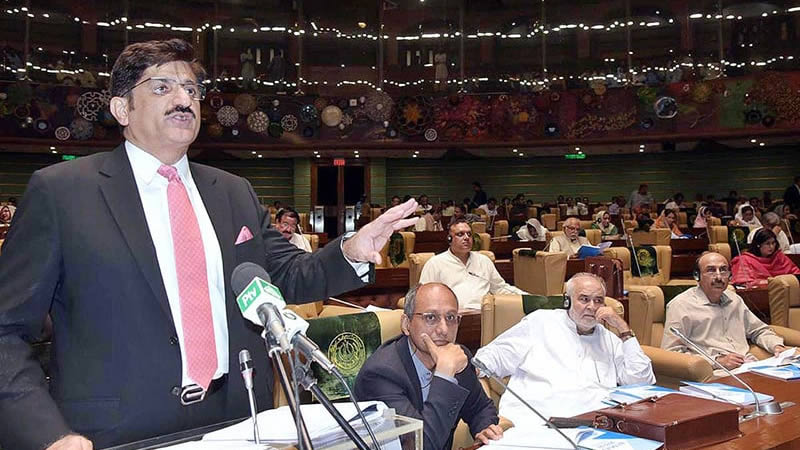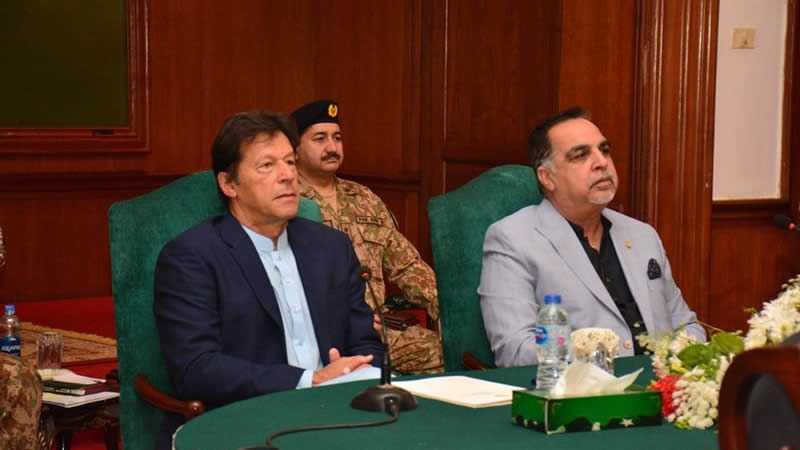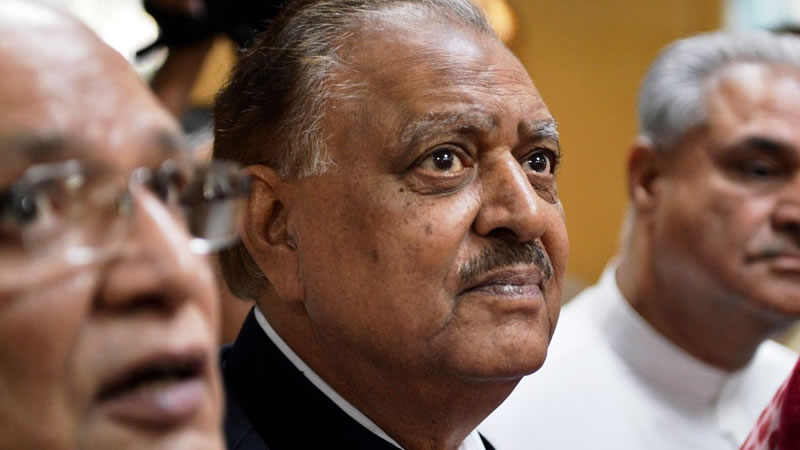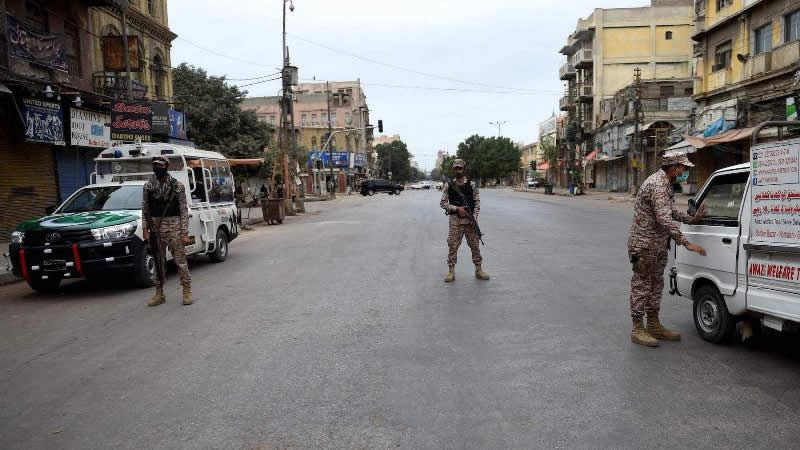The government of Sindh has allocated Rs2.7 billion to set up new hospitals, as well as to expand the intensive care units (ICUs) and high-dependency unit (HDUs) as part of its coronavirus response effort, according to a press release issued Wednesday.
In a meeting at the Chief Minister House in Karachi, Chief Minister Murad Ali Shah directed the provincial health department to make at least 500 monitors and 200 ventilators available in Sindh, as well as ensure the completion of a 50-bed hospital in Gulistan-e-Jauhar and 200-bed infection disease control hospital at NIPA, latest by June 2020.
“We have arranged Rs2.7 billion to upgrade the existing facilities and operationalise two new hospitals in the city. Hopefully, [with this], the government would be able to accommodate a large number of patients, in case of a further spread of [the] pandemic.”
Capacity improvement across Sindh
Capacities — including ICUs, HDUs, and isolation bed facilities — of 21 existing hospitals across Sindh were also to be expanded, the meeting decided. Among the participants were the provincial health minister Azra Fazal Pechuho, Chief Secretary Mumtaz Shah, PSCM Sajid Jamal Abro, Health Secretary Zahid Abbasi, Professor Dr Bari, and other officers of the health department.
In Karachi, these include Dr Ruth K. M. Pfau Civil Hospital, SMBB Institute of Trauma, Dow University of Health Sciences (DUHS) Ojha campus, Jinnah Postgraduate Medical Centre (JPMC), Lyari General Hospital, Sindh Services Hospital, Indus Hospital, National Institute of Child Health (NICH), Sindh Institute of Urology and Transplantation (SIUT), Aga Khan University Hospital (AKUH), and Ziauddin Hospital.
Elsewhere in Sindh, these include Liaquat University Hospital Hyderabad, Peoples Medical College (PMC) Shaheed Benazirabad, Civil Hospital Khairpur, Gambat Institute of Medical Sciences (GIMS) Gambat, Ghulam Muhammad Mahar Medical College (GMMMC) Sukkur, Chandka Medical College (CMC) Larkana, Syed Abdullah Shah Institute of Medical Sciences (SASIMS) Sehwan, District Headquarters Hospital (DHQ) Kotri, Indus Hospital Badin, and Jacobabad Institue of Medical Sciences (JIMS) Jacobabad.
At present, these hospitals have 224 ICU beds, 268 HDU beds, and 1,143 beds in isolation facilities, with 186, 268, and 898 more to be added, respectively.
Enhancement of wards
Shah was also apprised of the establishment of 131-bed ICUs and 174-bed HDUs in 10 different hospitals in the city. However, 61 beds in the ICUs and nine in the HDUs were vacant at present.
In response to a question, he was informed that 30 monitors and six new ventilators have been provided to the Dr Ruth K. M. Pfau Civil Hospital.
Piped oxygen work in the hospital’s Medical Wards 1 and 2 and Surgical Wards 1 and 2 was completed, as was negative pressure piping work of the surgical ICU, which would have the capacity of 27 beds.
Separately, the 85-bed Medical Wards 1 and 2 would be made functional after 60 more monitors were provided. Similarly, Surgical Wards 1 and 2, as well as the 27-bed ICU and 53-bed HDU would be made functional after the provision of 23 ventilators and 53 monitors.
Gulistan-e-Jauhar facility
Shah was told that while the structure of a 50-bed hospital across Karachi University was ready, work on its oxygen pipeline would be completed by the end of the current week.
The chief minister approved Rs95.7 million for the purchase of medial equipment, such as ABG machine, BIPAP machines, four ventilators, 40 monitors, two portable suction machines, one portable x-ray machine, two ECG machines, 30 syringe pumps, 30 infusion pumps, three crash trollies, two defibrillators, two portable monitors, 35 beds, four ICs, and a 500 KVA generator.
He gave four to six weeks to the Sindh health department to ensure the hospital was functional.
IDCH NIPA
Shah was also apprised of the developments pertaining to the three-story, 200-bed Infection Disease Control Hospital in NIPA, which would have high-flow oxygen and an ICU. While its structure was ready, necessary installations are ongoing.
In this regard, the chief minister directed the provincial health department to ensure that the 54-bed ground and first floors were functional within the next five weeks.
The private hospitals were directed to expand their ICUs and HDUs as per the Sindh government’s request.
Shah said over Rs2.7 billion had been released to purchase equipment to upgrade the existing facilities.
Almost 700 more coronavirus cases detected
Meanwhile, local transmission cases of the novel coronavirus rose by 699, bumping up the provincial tally to 24,206. The chief minister said that six more people had died of the virus, taking the total death toll to 380, or 1.6% of the total patients.
CM Shah said the new cases were diagnosed after 2,177 tests were conducted over the past 24 hours. This, he added, translated to almost 31%, “which is comparatively higher”.
At present, 12,836 of the 14,556 patients under treatment are in self-isolation — 793 at isolation centres, and 927 in various different hospitals, he said. Of the 235 patients in critical condition, 42 were put on ventilators.
38.3% recovery rate
Some 755 patients recovered, taking the total number of recoveries to 9,270 and translating to a 38.3% recovery rate.
Demographically, 559 of the 699 new cases were from Karachi. The East district had most, at 174, while the Central, South, West, Korangi, and Malir districts had 125, 99, 56, 50, and 33 cases, respectively.
At least 24 new cases were diagnosed in Ghotki, 11 in Sukkur, 10 in Larkana, seven in Mirpurkhas, six each in Jacobabad and Badin, five in Hyderabad, three in Jamshoro, four in Shikarpur, two each in Khairpur and Thatta, and one each in Dadu, Qambar Shahdadkot, Shaheed Benazirabad, and Tando Muhammad Khan.
The chief minister, once again, urged the people of Sindh to stay home, observe self-isolation, and not crowd the markets. Otherwise, controlling the coronavirus would not be possible.












